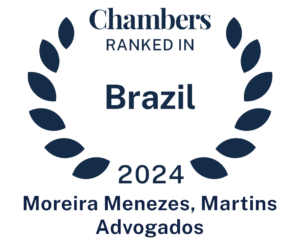The domains of business law:
understanding the scope of the activity.
Understanding the role of the lawyer is essential for full exercise of the profession, although a broad view of its extent and relevance is still rare in Brazil.
Speaking of business law in Brazil is a pleasant task and should start with a dose of history.
During the Empire period (from independence from Portugal in 1822 to the Proclamation of the Republic in 1889), Brazil produced many brilliant lawyers and jurists, although there was no bar association (founded only in 1930). It was the era of the law degree holders, attentive to the needs of a Brazil undergoing intense transformation, in which positivist and abolitionist ideas collided rancorously with the traditional tenets of the slaveholding elite.
The leading lawyers of this time and in the first decades of the Republic were Teixeira de Freitas, Clóvis Bevilaqua, Ruy Barbosa, J. X. Carvalho de Mendonça, Rodrigo Octavio and Eduardo Espínola, all of whom have left a rich legacy of writings that are still quoted today in legal opinions and court decisions.
For decades, the activities of good business lawyers were constrained by the country’s timid economic development. The remarkable contributions of the likes of Waldemar Ferreira, Spencer Vampré and Miranda Valverde would certainly have been greater had our economy been anywhere near developed countries’ economies.
Therefore, it is no exaggeration to say that the profile of the business lawyer was forged only recently in Brazil, basically starting in the 1990s, a period of economic opening and development of a flow of private business deals that inundated the domestic market, spurred by the privatization program and strong influx of foreign capital.
Curiously to modern observers, lawyers before that time were stereotyped as forensic professionals: legal practitioners were identified with litigation conducted in the courts, and lawyers were in general isolated in their legal world, dialoguing with each other or exchanging information with judges by means of their own “legalese” dialect.
The exceptions were the “business consultants”, to use an expression coined in the 1970s by Rubens Requião. All the same, as professionals lurking in the shadows of companies’ daily affairs, these “consultants” performed a merely accessory function.
To give an idea of these times, it is worth mentioning a recollection by Luiz Fux, now a Brazilian Supreme Court Justice, on his early experience as an in-house lawyer for Shell, in a class given at Rio de Janeiro State University in 1997. He said that when the lawyers arrived to give their opinion on a particular contract or deal, the managers immediately commented: “Here come the naysayers!”
It was the norm for lawyers to be inculcated with a culture of absolute aversion to risk. Seeking to protect all and everyone, lawyers focused mainly on the drawbacks of any contractual transaction, often to the point of pulling the rug from under a good business opportunity.
However, risk is the essence of any company, and indeed of life itself. How can its existence be denied?
In the past two decades, Brazil’s corporate lawyers have had to broaden their horizons. It is no longer enough to know the system of rules and to apply legal concepts wisely.
Lawyers need to enter the playing filed as catalysts of business deals and use their knowledge to aggregate value to their clients, whether by providing efficient legal solutions or by correctly identifying the legal risks and then finding ways to neutralize (or minimize) the potential adverse effects.
For this purpose, it is of the utmost importance to have a good grasp of other related disciplines to the law, such as business administration, economics, finance and negotiating techniques.



